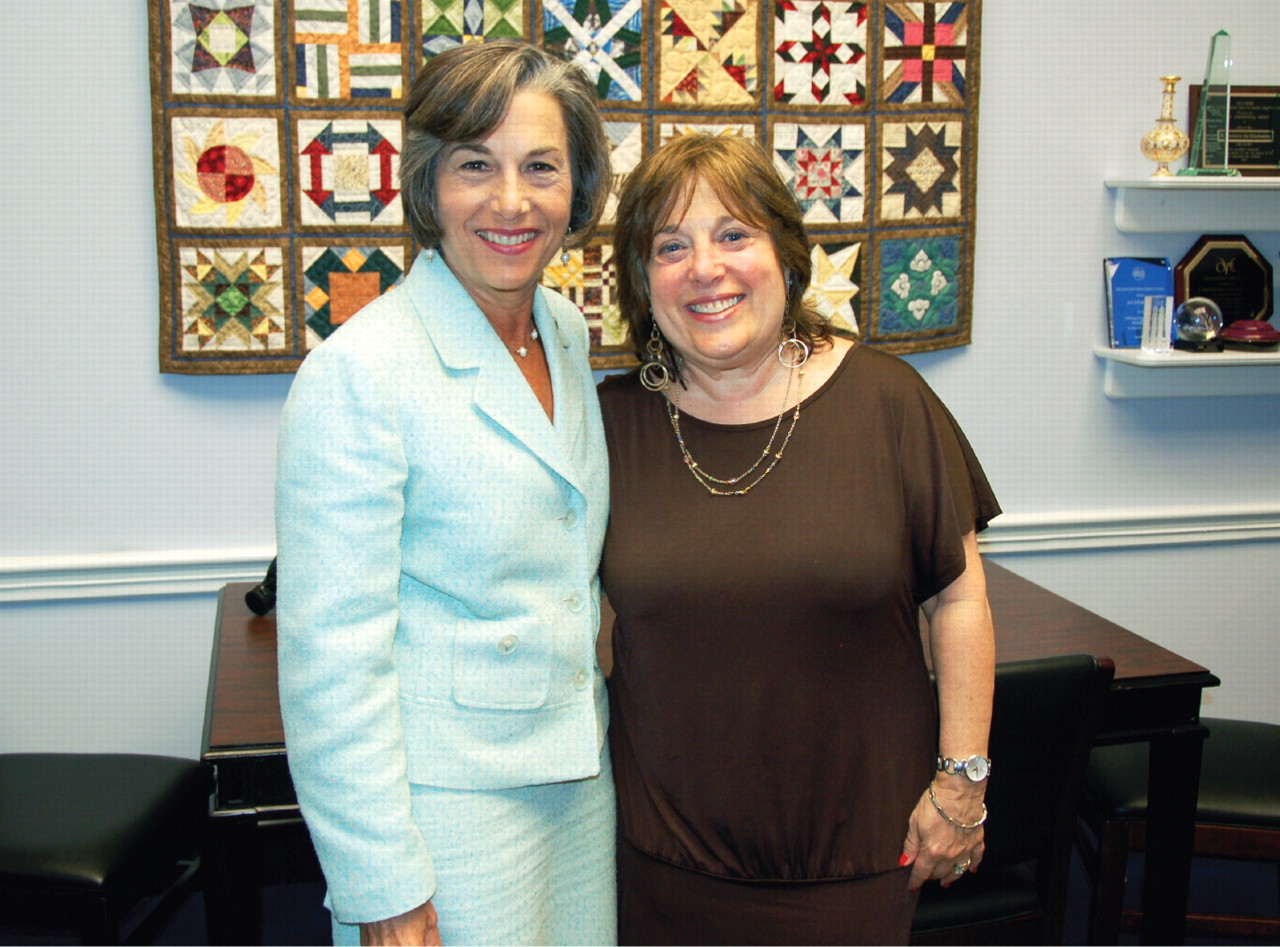Member of Congress Initiates Policy Discussion With Bernstein
Abstract
A key component of the health care reform law enacted earlier this year encourages greater physician coordination to improve treatment outcomes. However, these care-coordination programs currently omit psychiatrists from leadership roles by limiting coordination oversight to primary care physicians, even when a patient's primary disorder is a mental illness.
As part of APA's efforts to address this and other psychiatric concerns related to the health care law, APA President Carol Bernstein, M.D., met in July with a member of Congress who has emerged as an influential voice on mental illness issues.
Rep. Jan Schakowsky (D-Ill.) invited Bernstein to her office to discuss national mental health concerns, such as the lack of a legal requirement for federal health officials to allow psychiatrists to lead so-called patient health homes, which designate a physician to coordinate all treatment needed by patients with multiple health conditions. Such health homes received a major boost by the Patient Protection and Affordable Care Act (PL 111-148), which will promote their use on a pilot basis through Medicare before moving to nationwide adoption of this care model.

APA President Carol Bernstein, M.D. (right), poses with Rep. Jan Schakowsky (D-Ill.) in July. The two discussed concerns about regulations to implement the new parity law and other issues.
“It helps when someone is in charge [of a patient's care] and that person can really bring everyone together,” Schakowsky said in her meeting with Bernstein, which Psychiatric News attended.
Many in the health care community believe that health homes will improve patient care, but Bernstein lamented the lack of a role for psychiatrists in acting as coordinators of care under these programs, noting that such an omission could negatively impact the care received by patients whose primary concern is a mental rather than another type of illness.
The type of illness with which patients most identify should “drive which type of doctor is in charge of the team” to ensure that the most-needed care is delivered, Bernstein said. She added, “It's good to have more integration [of primary and psychiatric care], because many conditions have co-occurring mental illnesses.”
Improvements in mental health care have become a growing focus for Schakowsky, who cosponsored the Melanie Blocker Stokes Mom's Opportunity to Access Health, Education, Research, and Support for Postpartum Depression Act (HR 20). That measure was rolled into the health care overhaul and will provide expanded research and public-information dissemination on postpartum depression.
The specific rules that will implement the postpartum-depression measure and other components of the health care reform law remain “big unknowns,” according to Bernstein, and will require oversight and involvement by members of Congress, such as Schakowsky.
Another area of federal mental health policy that Bernstein discussed with Schakowsky was the need for congressional oversight of emerging regulations to implement the federal insurance parity requirement, enacted in 2008. APA has repeatedly raised concerns with federal regulators over some insurers' interpretations of the law and its accompanying regulations. Some insurance companies, APA and other mental health advocates warned, are unfairly limiting the types of conditions and treatments that they will cover.
“Although the parity regulations are out there, they will need to be watched for implementation,” Bernstein said.
In more general areas of health care policy and legislation, Schakowsky—who supported inclusion of the so-called public option during the health care reform debate—said that the provision may return as part of the recommendations of President Obama's National Commission on Fiscal Responsibility and Reform. As a member of that commission, Schakowsky said she was concerned that other members have proposed moving Medicare to a voucher system to save money. She plans to offer as an alternative that Congress enact either a public-insurance option or adopt a single-payer health care system.
“The public option was popular in every poll that was taken,” Schakowsky pointed out.
Consideration of either a public option or a single-payer system is still needed to address ongoing insurance rate increases that are occurring, despite enactment of the health care overhaul, she noted.
“It's amazing how immune [members of Congress] are to the real problems people have with their health care costs,” Schakowsky said.
Information on Schakowsky's health-related initiatives is posted at <http://schakowsky.house.gov/index.php?option=com_content&view=article&id=2597&Itemid=46>.



